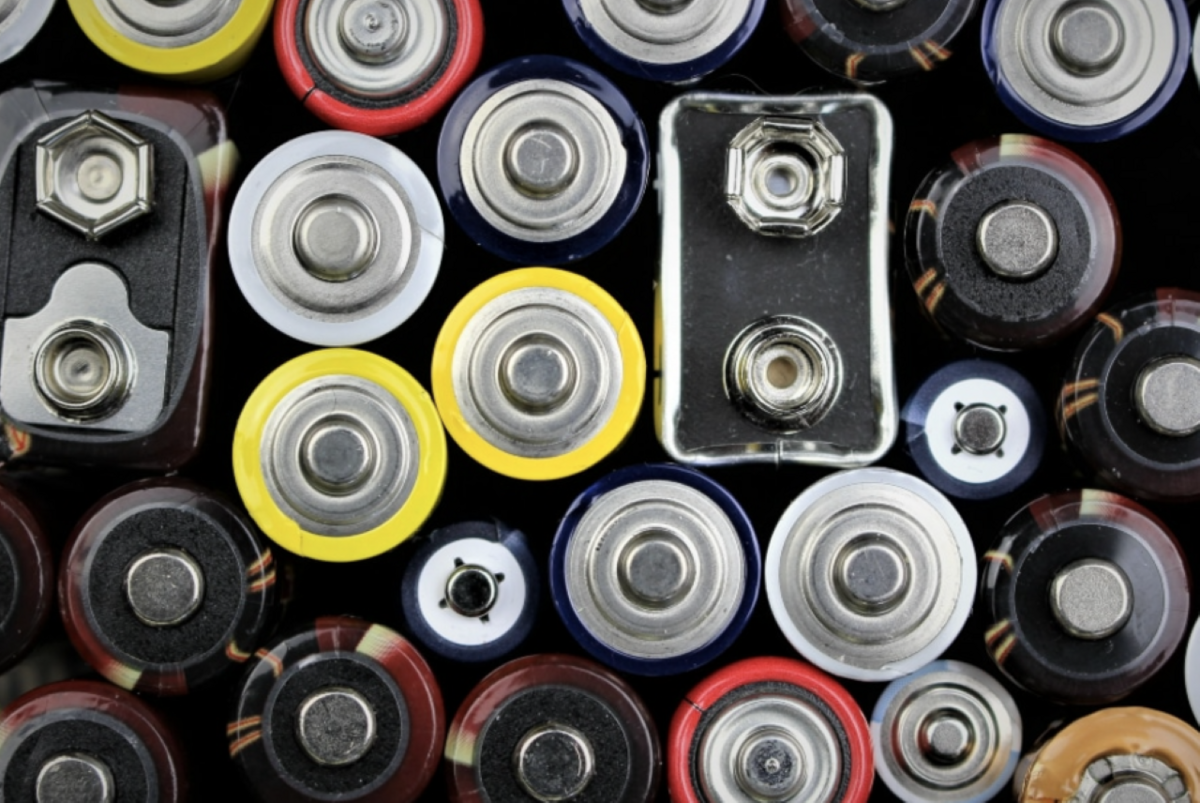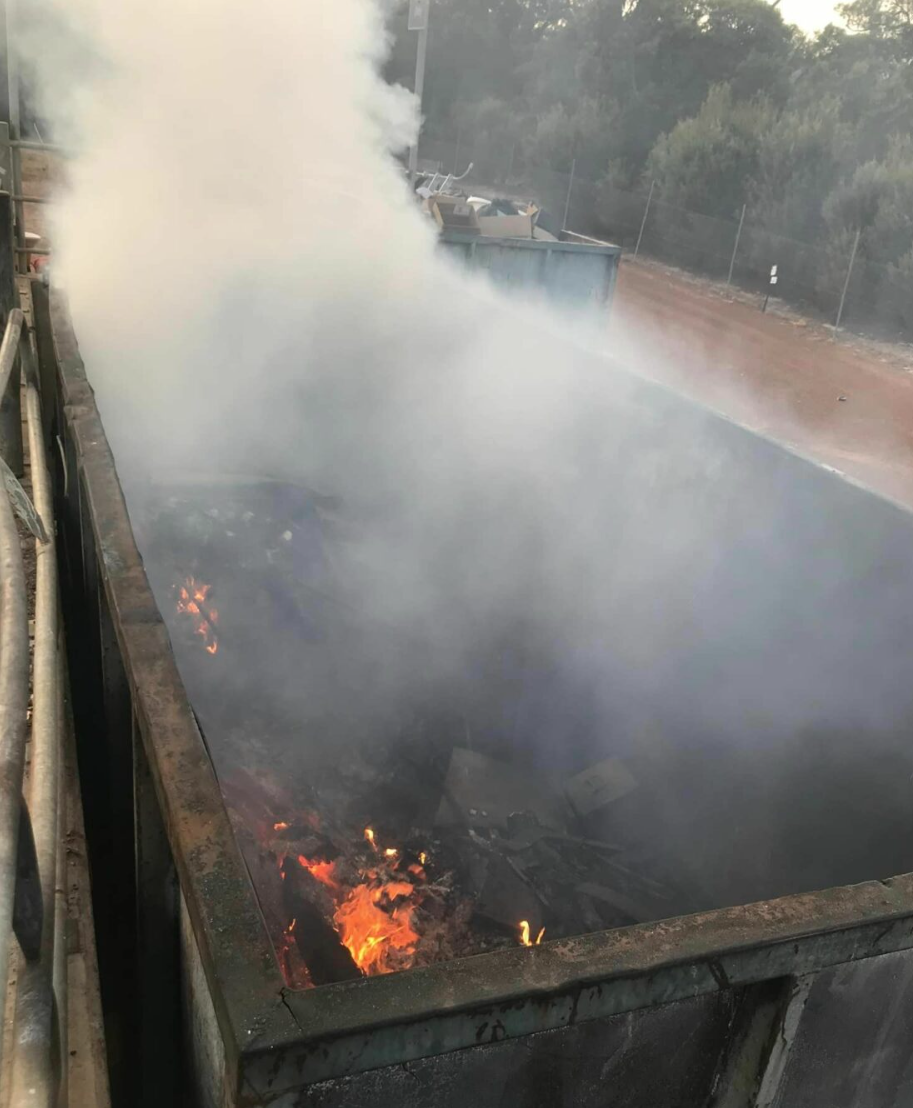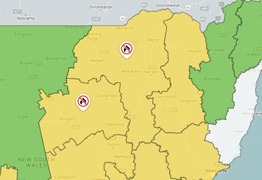Small battery, big (fire) problem
Kristin Murdock
11 November 2024, 8:40 PM

With temperatures on the rise, warnings about fire hazards are also on the increase, but there is one fire danger source that you might not be aware of – embedded batteries.
An embedded battery is a small battery that is placed permanently within an item and often buried deep within the device with no easy way of being removed.
Embedded batteries are a real danger, with three fires having been reported as a result of batteries being incorrectly disposed of in kerbside bins in the Central West in the last month alone.
These batteries are made of highly combustible materials including lithium-ion and have been linked to a significant rise in fires at homes and waste facilities.
There were 193 battery-related fires in NSW between January 1 and August 1, 2024 which is an 18 per cent increase on the same period last year.
In 2023, the number of lithium-ion battery-related fires in NSW jumped to 285, more than double the previous year, and the majority were traced back to small devices.
These potential hazards are found in many common rechargeable items that don’t have a replaceable battery – things like electric toothbrushes, baby monitors, shavers, smart watches, speakers, headphones, and vacuums.
Batteries are made of highly combustible materials including lithium-ion and have been linked to a significant rise in fires at homes and waste facilities.
Though not a common source of fires in our region, District Manager of the Northwest Rural Fire Service (RFS) Zone, Luke Robinson, said this new fire threat is definitely a concern.
“I’m glad to say I’m not aware of a fire starting from these batteries in our region, but they can be a real danger,” he said.
“The batteries include the small circular ones, up to the size of a drill battery.
"The trouble happens when they are disposed of with all other rubbish.
“Batteries can then start fires in dumps and on kerbsides.
"We don’t generally see them start bush or grass fires, but there have been a number of fires in Sydney from these batteries and thermal runaway."

In March 2023, Cleanaway operators servicing a customer’s site found a fire in one of hook lift bins. The fire is suspected to be caused by an embedded lithium-ion battery. (Image: Cleanaway)
A thermal runaway is an incident where one exothermal process triggers other processes, resulting in an uncontrollable increase in temperature.
This can result in the destruction of the battery or, in severe cases, also in fire.
“I know of garbage trucks dumping their loads on sides of road when their machines have detected fire or smoke,” Mr Robinson said.
According to waste management company, Cleanaway, embedded lithium-ion batteries are dangerous as it doesn’t take much for lithium to combust.
There have been reports of lithium-ion batteries catching fire by simply coming into contact with moisture which makes them especially dangerous when placed in kerbside recycling bins.
NSW Environment Protection Authority (EPA) Executive Director Programs and Innovation, Alexandra Geddes said batteries must be disposed of properly at a battery recycling drop-off point as they are made of highly combustible materials.
“Think twice before throwing an item in the household bin. If it contains a battery and is discarded in your kerbside bin it poses a serious fire risk for garbage trucks and waste facilities.”
“Embedded batteries are in all of our homes, including in wireless household products, light up toys and disposable vapes,” Ms Geddes said.
“We are currently running an embedded batteries trial at 21 council-operated Community Recycling Centres.
"The Centres have designated bins allowing people to safely dispose of embedded battery products, free of charge.”
While a great idea, none of these Centres are located in the Western Plains, with the closest Community Recycling Centre based at Dubbo.
Vapes are also a growing concern as they contain both a battery and hazardous chemicals, posing serious fire risks.
The problem is not going away, with lithium-ion battery sales expected to increase six-fold to 600,000 tonnes per year by 2050.
The NSW Government wants to recycle and repurpose these batteries so fewer of them go to landfill in the first place.
The current Community Recycling Centres trial will be used to collect information on the types and quantities of embedded battery products being thrown out, the collection and processing options for these products and the best ways to remind people of correct recycling habits.
The trial will run until September 2026, with reviews along the way.
The NSW Government has announced strict new standards on lithium-ion powered e-bikes, e-scooters, and similar products.
Sellers who don’t meet the new regulations could be fined up to $825,000.
More information about the trial including a list of eligible products can be found online: https://www.epa.nsw.gov.au/embedded-batteries
For more information on the safe recycling and disposal of batteries visit can be found here.

